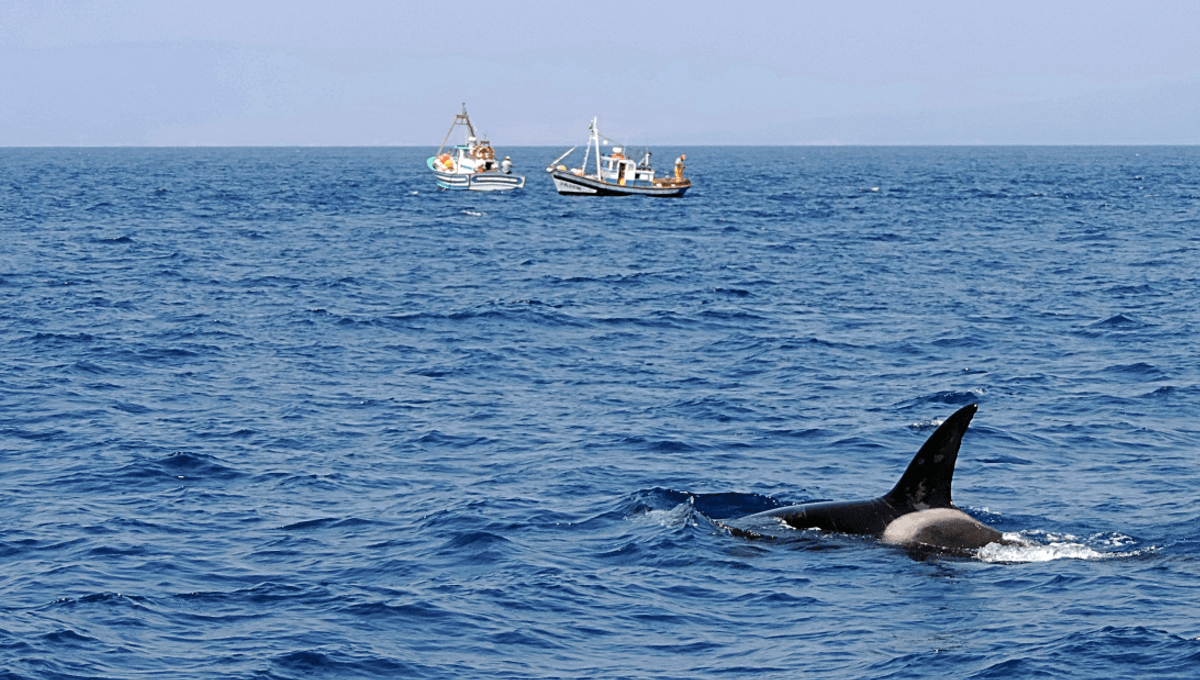
A pod of orcas has taken out a boat off the coast of Spain, damaging the rudder to such an extent that the two-person crew were stranded off Cape Finisterre. That’s according to a statement emailed to the New York Times by their rescuers – and given recent events, it’s not all that surprising.
Orcas interacting with boats have been regularly appearing in the news of late, with over 600 reports coming in between 2020 and 2024. They’ve been intercepting vessels off the coasts of Morocco, Spain, and Portugal, typically taking on smaller sailboats and paying special attention to their rudders.
This latest vessel strike of a boat named Amidala didn’t result in capsizing, but previous efforts from the orcas have. Orcas, also known as killer whales and the velociraptors of the sea, can mean serious business when it comes to hunting. It’s led some to wonder if these “attacks” are a learned behavior passed on to the pod by a whale that had a bad experience with a vessel.
Now, the Bottlenose Dolphin Research Institute (BDRI) in Spain has put forward an alternative theory: perhaps they’re in training. Orcas are mighty predators capable of taking on mighty prey, including the Atlantic bluefin tuna, which is an absolute unit of a fish.
According to NOAA, these whoppers can grow up to 4 meters (13 feet) long, weighing 907 kilograms (2,000 pounds) with a hydrodynamically-shaped body and white underside. You know what else can be about that long, designed for cutting through the water, and often with a white underbelly? Boats.
Catching a bluefin tuna is no mean feat as these highly muscular fish can move through the water at speeds of up to 45 kilometers per hour (28 miles per hour) and accelerate faster than a Porsche. Catching such a beast requires training, and we humans may have provided the perfect tuna decoy.
Animals prepare for situations through play. If you’ve ever had a kitten, you’ll have witnessed first-hand how they playfully run around trying to murder everything despite weighing about the same as a pineapple. All that leaping and grabbing and rolling is how felines learn the athletic skill required to take down prey in later life, and the same is true of many animals.
“Killer whales interacting with vessels possibly reflect manifestations of play behavior, a well-established trait in these highly intelligent mammals,” reads the BDRI paper. “Play provides opportunities for marine mammals to develop and refine both cognitive and physical skills.”
If the whales don’t learn to hunt it can impact their chances of survival, and to stay alive, orcas have adapted all kinds of ways of hunting bluefin tuna based on where they’re hunting them. This includes working together as a pod, tiring out the tuna, and even catching them in the fisheries and longlines we humans have left lying around.
“During interactions with vessels, killer whales have been documented engaging in diverse actions, such as strokes, corporal lever movement, and biting of varying intensity,” explain the authors. “These behaviors could potentially serve as an exercise for killer whales, where vessels act as stimuli for play, fostering cooperative techniques, preparing for pursuits of [Atlantic bluefin tuna], and facilitating improvements in motor skills, ultimately simulating hunting techniques.”
The authors conclude that more research is needed to truly understand what is motivating orcas’ pursuits of recreational boats, but that doing so can help us better protect the endangered population, recreational vessels, and the people inside them.
The paper is published in the journal Ocean & Coastal Management.
Source Link: Orcas Strike A Boat In Spain As A New Theory Arises To Explain The Destruction